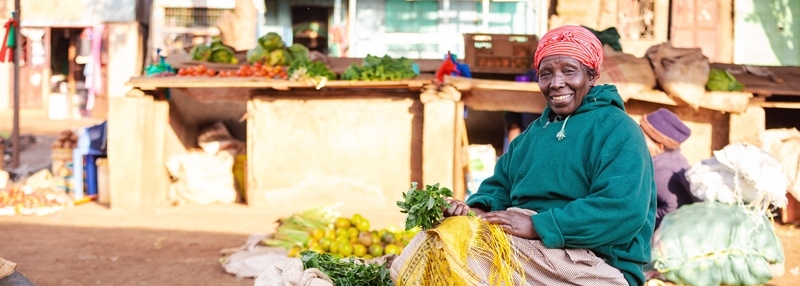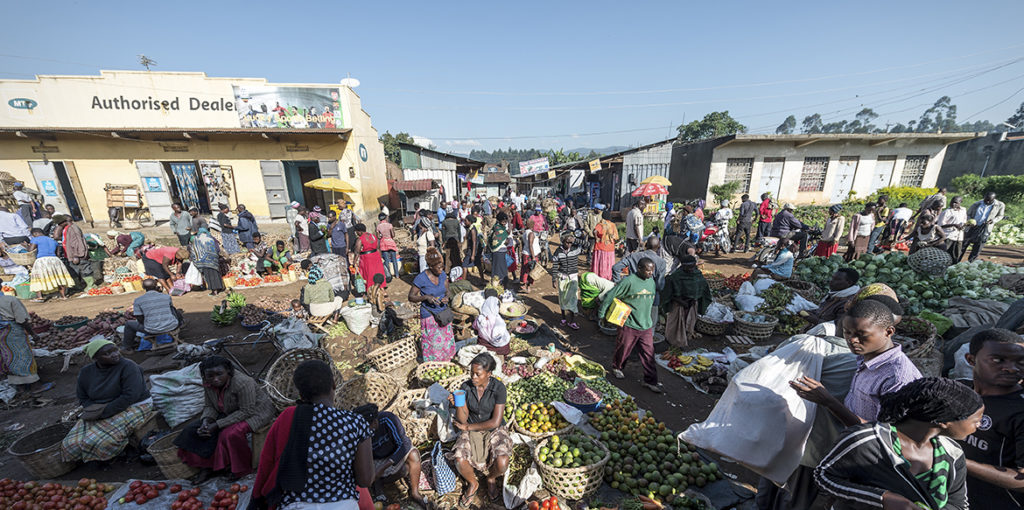Festivities to mark a new year and decade have been short-lived the world over as the first months of 2020 witnessed the impact of the COVID-19 pandemic. Parts of Africa were already plagued by desert locusts, but before these could be tackled, the new corona virus arrived. This has created a double pandemic for some parts of the continent.
Millions already at risk – and now COVID-19
The Food and Agricultural Organization’s (FAO) March 2020 update indicates the locust invasion is most concerning in the Horn of Africa and Kenya, where widespread breeding is in progress. New swarms – projected in the millions if not nipped in the bud – will cause catastrophic destruction to food production. So millions are already at risk of hunger and malnutrition.
But the advent of COVID-19 in the midst of the locust plague in East Africa will have unprecedented implications for citizens and governments.
With confirmed cases in Uganda, Kenya, Uganda and Rwanda, partial lockdowns across the region have taken effect. Borders have been closed, commercial flights suspended, and citizens told to stay at home. Now “social distancing” is the word of the day, and messages about personal hygiene and sanitation are sweeping the airwaves.
Restrictions in personal mobility and transport as ordered by governments also imply that transporting food from points of production to markets will be affected. Social distancing at food markets and suspension of typical African gatherings are in turn distorting demand and supply. And as low-income wage earners lose their jobs, there is less purchasing power for everything, including food.
Vulnerable groups most hard hit
Current uncertainty about supply of basic commodities, particularly those imported from countries already hit by COVID-19, has encouraged unscrupulous traders to inflate prices as they anticipate a total lockdown. This also includes domestically produced food items.
Vulnerable groups such as unemployed youth, the elderly, women and children from low-income households are at a higher risk of food scarcity and malnutrition. They have no buffers to lessen these shocks or afford price-gauging.
Even under “normal circumstances”, it is very difficult for people to find enough diverse and nutritious sources of food. According to the FAO, 820 million people around the world experience chronic hunger. Of these, 113 million are facing acute food insecurity and depend on external assistance. The COVID-19 pandemic will only make the situation worse.
Immaculate Yossa, Hivos Advocacy Manager Sustainable Diets for AllNow more than ever, we have to fight against all actions that disrupt nature and its resources.
Advocating for a systems approach since 2016
Since 2016, Hivos and partners under the Sustainable Diets for All program have advocated for a systems approach to tackle food and nutrition problems. Our message has never been timelier than now. We wish to reiterate the need to address food production, processing, trade, retailing and consumption simultaneously.
For example, domestic agro processing must be prioritized by governments in East Africa to curb dependency on imports. Always an issue, this dependency is now creating shortages because of closed borders and travel restrictions. Ramping up domestic food production and processing will also develop local industries, provide employment and improve the standard of living for people in rural economies where most of the production takes place. Additionally, food safety nets should be integrated in disaster preparedness programs. And we must support efforts to ensure affordable, safe and nutritious food is available and accessible to all.
Review trade policy and consider subsidies
During any health crisis, patients require nutritious food – as well as medicine – to recover quickly. In light of this, governments should review trade policies taking into account the needs of low-income consumers, producers, traders and processors. Together they form the backbone of the food system. For example, subsidies on essential food items should be considered to increase production and promote fair prices on the market. This will ease the burden on the entire population, especially the vulnerable.
In times of crisis, social protection programs like the Social Assistance Grant for the Elderly (SAGE) in Uganda could include support to households that have greater difficulties accessing food. Increasing monthly stipends to the elderly already enrolled would enable them to access food they need for their very survival.
We must reduce persistent inequalities
Those entrusted with power and charged with serving the general public need to reconsider the ability of our current systems and institutions to handle crises. Now more than ever, we have to fight against all actions that disrupt nature and its resources. It is imperative that we promote and conserve our biodiversity and invest in healthy systems, especially those with food at the center. And most importantly, we must reduce the persistent social, economic and political inequalities that aggravate the vulnerabilities of low income earners, youth, women and elderly.


